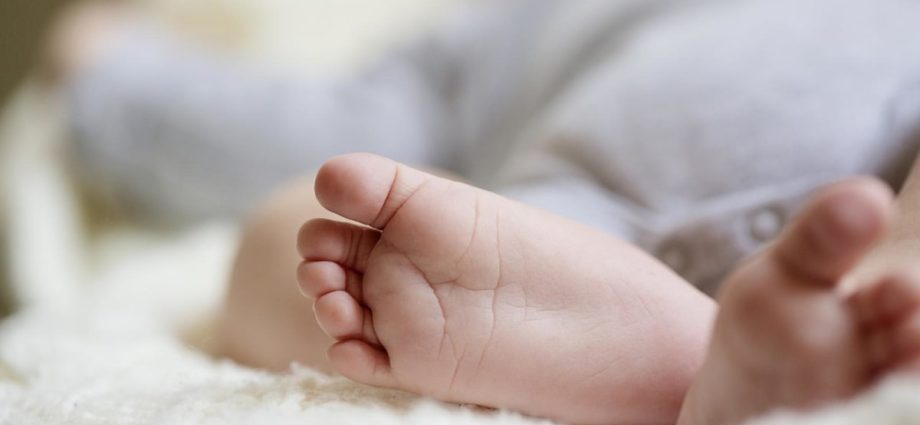
SINGAPORE: Cordlife, a private cord blood bank, is under investigation after seven of its tanks storing cord blood units were exposed to temperatures above acceptable limits, said the Ministry of Health (MOH) on Thursday (Nov 30).
During investigations, MOH found that the affected storage tanks has been exposed to temperatures above -150 degrees Celsius, the acceptable limit for cord blood units.
Around 2,200 cord blood units belonging to approximately 2,150 clients have been damaged. Another 17,000 clients could be affected, pending investigations.
The company was ordered on Thursday to stop the collection, testing, processing and/or storage of any new cord blood and human tissues, or provide any new types of tests to patients, for a period of up to six months.
Cordlife has been given 14 days to make representations to MOH.
Cord blood unit storage, a private service offered to parents when their babies are first born, has emerged over the last 20 years, said MOH.
Cord blood, which contains stem cells, may be used in stem cell transplants to treat blood diseases and some cancers such as leukemia and lymphoma, should the baby develop such illnesses in the future.
Cordlife is currently licensed in Singapore as a cord blood and human tissue banking service, and a clinical laboratory service.
INVESTIGATIONS
MOH said during the company’s last inspection in September 2022, as part of a biennial routine for such services, it had not found any lapses relating to the temperature of the storage tanks based on random checks. Cordlife also did not disclose any incidents during or after the routine inspection.
But MOH received a complaint from a member of the public on Jul 24 this year, alleging that cord blood units stored in a tank at Cordlife had been exposed to temperatures above 0 degrees Celsius, in addition to other service quality issues.
The ministry then conducted unannounced audits on the company on Aug 15, and Nov 16 to Nov 21.
“Between the first audit in August 2023 and second audit in November 2023, MOH’s inspectors had contacted CGL on multiple occasions to request for and clarify their reports, documents, and request for further explanations where discrepancies were noted,” it said.
The audits showed that Cordlife’s cryopreserved cord blood units had been exposed to temperatures above acceptable limits in seven of its 22 storage tanks at different periods, dating back to November 2020.
MORE THAN 19,000 CLIENTS COULD BE AFFECTED
“Based on CGL’s (Cordlife Group Limited) inventory records provided to MOH, an estimated 2,200 cord blood units belonging to approximately 2,150 clients in one of the affected tanks (Tank A) were exposed to temperatures beyond the acceptable limits for several days in February, March and June 2022,” said the Health Ministry.
“CGL had tested some of the donated cord blood units stored in Tank A to establish the cell viability of the affected cord blood units. MOH appointed a panel of three cord blood banking experts to conduct an independent review of CGL’s test results,” it said.
“All of the experts have concluded that the cord blood units stored in Tank A have been damaged, and are unlikely to be suitable for stem cell transplant purposes.”
MOH also found that Cordlife’s temperature monitoring system failed to send notifications of the temperature excursions in two tanks to Cordlife personnel between February and June 2022.
It added that the company’s six-monthly preventative maintenance was also not carried out for two tanks in 2022, while a new cord blood processing method implemented in August 2023 was not properly validated according to approved plan and protocol.
“CGL has not taken adequate steps to expeditiously escalate, address and rectify the above issues, including the systemic problems which may have led or contributed to them,” said MOH.
MOH said investigations are ongoing for the remaining six storage tanks, which contain approximately 17,300 cord blood units belonging to about 17,050 clients.
Pending the outcome of this probe, the ministry will consult its experts to determine if similar tests should be performed for the cord blood units stored in the six tanks.
MOH also said it will consider further enforcement actions, including imposing financial penalties or prosecution.
While investigations are ongoing, Cordlife has been directed by MOH to “take appropriate remedial actions to address the lapses and strengthen their governance and processes. MOH will closely monitor and audit them”.
“CGL’s lapses will be distressing to many of their clients. MOH has instructed CGL to reach out to all its clients to address their concerns. Individuals who are concerned should contact CGL directly to enquire about the status of their CBU and if their CBU is in the impacted lot.”
MOH said: “To provide assurance to parents who have stored their cord blood units in the three other licensed cord blood banks in Singapore, MOH has conducted a targeted audit of these banks from Nov 15 to Nov 22, 2023, focusing on the quarantine, storage, and distribution of cord blood units.”
“Our investigations have found no temperature excursions of concern at the other three licensed cord blood banking service, namely Cryoviva (Singapore) Laboratory Services, Stemcord Private Limited and the Singapore Cord Blood Bank.”.

